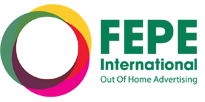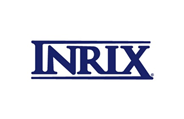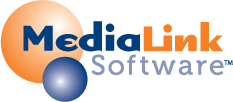Outdoor Advertising and Industry Research Studies
Fliphound hopes new and existing participants in the outdoor industry will benefit from reading this ground breaking market research on the OOH industry, digital LED billboards, local and national advertising, media planning, DOOH, digital signage, digital convergence, social media, and other industry topics. Several studies also help advertisers analyze how out-of-home (OOH) compares to and complements other media including TV, print, radio, internet and social media advertising.
Access leading reports, case studies, market research, industry trends data and statistics, and industry analysis from leading organizations including Arbitron, Nielsen FEPE, TAB, INRIX, OAAA and others.
-

FEPE and Future Foundation
Always On: Out of Home Lives 2014To learn more:See how out-of-home (OOH) influences people in an increasingly mobile world. Learn more about the opportunities and advantages of OOH and where it sits in the media mix.
-

INRIX insights proof of posting to proof of performance 2015
To learn more:INRIX operates the most robust driver network in the world that includes data on 275 million vehicles and smartphones. This research report shows how INRIX provides true vehicle volume counts and impression data to help measure the effectiveness of OOH advertising placement. INRIX provides vehicle information data that includes time of day, speed, day of week information is being used to bring new levels of transparency and accountability to OOH advertising for pre and post campaign analysis.
-

Outdoor Advertising Measurement: an introduction in impression based metrics
To learn more:This article provides an introduction to impression based advertising metrics and insight in how such impressions are calculated making it easier for advertisers to compare different media alternatives. This simple tutorial with detailed equations shows how DEC counts can be used to calculate impression estimates of gross rating points (GRPs), frequency and reach.
-

Arbitron Digital Billboards Report: Cleveland Case Study (2008)
To learn more:This detailed survey examines travelers’ awareness and attitudes towards digital billboards on major highways and thoroughfares to gauge their level of engagement with billboard advertising messages.
-

Arbitron National In-Car Study (2009)To learn more:This detailed research report and survey examines America’s in-care media audience and its exposure to outdoor advertising, radio and audio technologies.
-

Arbitron Out-of-Home Advertising Study (2013 Edition)
To learn more:This detailed research report and survey examines America’s in-care media audience and its exposure to outdoor advertising, radio and audio technologies.
-

Arbitron Report: Outdoor Advertising and the Media Plan (2009)
To learn more:This detailed research report examines the reach, frequency and audience composition of several mass media in the United States including outdoor, Television, AM/FM radio, newspapers, and the Internet. It provides media planners with a side-by-side comparison of each platform.
-

Nielsen Local Television Market Universe Estimates 2015-2016 DMA
To learn more:Provides details on local television market universe estimates, including market ranks, designated market area (DMAs) by city, TV home count, and percent of overall US TV market share
-

Nielsen Digital Billboard Study 2015To learn more:Provides details on the digital billboard industry and the impact the more than 6,000 digital billboards and digital networks are having as a mass medium in the 166+ DMAs across the United States (U.S.). This on-location survey was commissioned by the Outdoor Advertising Association of America (OAAA) to help advertisers and media sellers understand the power and impact of digital billboard networks and advertising. Nielsen conducted 1,256 online surveys with an 18+ audience to assess the impact of 30 digital branding campaigns in 5 U.S. markets.
-

Digital OOH Dynamic Delivery of Consumer Advertising OAAA 2015
To learn more:Explains how Digital OOH (DOOH) billboard (or LED) technology gives advertisers and unparalleled ability to customize ad messages quickly and efficiently. This report demonstrates the wide range of capabilities of DOOH provides to advertisers including: day parting of content, user-generated content, countdowns, live scores, traffic and commuting triggers, ability to display trending items, weather triggers, social media, real-time special pricing, consumer convenience, and other messaging
-

Going Digital OAAA 2015To learn more:Brief update on digital billboards and how digital place based networks and billboards are impacting consumers nationwide. This analysis highlights the nimbleness, immediacy, and innovativeness of digital out of home advertising and how this effective medium can complement TV and other branding campaigns.
-

OOH Advertising Effectiveness and Return on Investment (ROI) OAAA 2011
To learn more:This detailed and empirical research was performed by the British media research firm BrandScience and shows how out-of-home advertising impacts sales results relative to other media. BrandScience found that for each dollar spent on out-of-home advertising, an average of $2.80 was received in sales. The return on investment (ROI) for OOH was higher than both television and print advertising. See detailed analysis on costs per one thousand impressions (CPM) versus other media for the 18+ adult audience.
-

Out-of-Home Advertising Today: Take Your Message Further OAAA 2013To learn more:Out-of-Home advertising (OOH) is one of the oldest media in existence, dating back to circus posters and horse-drawn streetcar advertising in the mid-1800’s. This report shows how OOH constantly evolves to adapt to new markets, new formats, new technology and new opportunities. Learn why OOH works, how OOH delivers high value audiences, how drives social, local and mobile marketing (SoLoMo) and complements your media mix.
-

Winning Votes With Digital OOH OAAA 2015To learn more:This report shows how political advertising helps win local and national elections. Learn how dynamic deliver of campaign and issue advertising using digital billboards can help you reach, engage and win over voters. This study demonstrated digital outdoor billboard capabilities and how digital billboards catch attention.
-

Out of Home Magazine New TAB Ratings (2014)
To learn more:This article helps advertisers and out-of-home professionals understand new TAB ratings. This story explains how ratings have been adjusted to include time of day and traffic speeds and other factors influence rating, impression and traffic count calculations. It along with some of the other resources listed in this section help media planners and specialist better understand how to measure the impact and compare out-of-home to other media.
-

TAB Brief: A Guide For Calculating Eyes on Impressions
To learn more:This one page brief provides a step by step guide on how TAB calculates eyes on impressions. It shows how to assign counts, how DECs, PDCs and visibility adjustments are incorporated into the calculations and how impressions or EOIS can be segmented into demographic audiences.
-

TABONLINE INFOGRAPHIC: CONSTRUCTING AN OUT OF HOME RATING
To learn more:This infographic helps to visually explain how TAB measures out-of-home audiences. This brief shows the various factor TAB considers in determining it impression calculations including: daily effective circulation (DEC) or traffic circulation; demographics, geo-positioning of the OOH unit; contact zone; speed data, dwell time, and how this effects digital advertising.
-

TAB Out-of-Home Ratings 2.0 Release (2014)
To learn more:This overview provides answers to frequently asked questions (FAQ) about TAB out-of-home measurements and ratings. It includes insight into the reason for adjustments to the old measurement system; details on their new traffic data source provider, INRIX; and outlines benefits of this new measurement system for buyers and sellers of outdoor advertising.